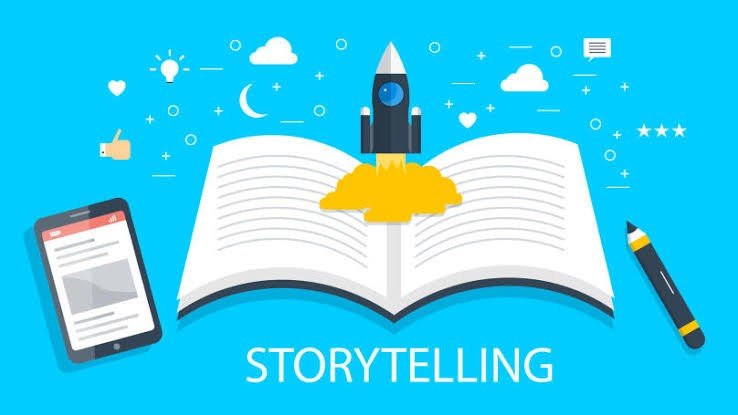As high school students embark on the challenging journey of college applications, the college admissions essay stands as a crucial opportunity to showcase their unique personalities, experiences, and aspirations. While academic achievements and test scores provide quantitative data, the college admissions essay breathes life into those numbers and allows admissions officers to connect with applicants on a personal level. In this blog, we explore the role of storytelling in crafting a compelling college admissions essay, highlighting the significance of narrative and the impact of professional college admissions consultants in shaping a successful application.

The Essence of Storytelling in College Admissions Essays
Human beings are hardwired to respond to stories. From childhood fairytales to blockbuster movies, storytelling captivates our hearts and minds. Similarly, a well-crafted college admissions essay that employs storytelling techniques can elicit an emotional response from the reader – the admissions officer. A compelling narrative not only presents the applicant’s accomplishments but also delves into their growth, challenges, and the lessons learned. By conveying their journey through storytelling, applicants can make a lasting impression and create a memorable experience for the reader. Let’s delve deeper into how stories create a lasting impact and help you stand out from the crowd.
- Emotional Connection: Stories have the power to evoke emotions, and the same applies to college admissions essays. Admissions officers read countless essays, and a well-crafted narrative can create an emotional connection that makes an applicant stand out. By sharing personal experiences, challenges, and triumphs, applicants can tap into the reader’s emotions, evoking empathy and a sense of relatability.
- Memorability: A compelling story has a lasting impact on the reader. When an admissions officer reads a memorable essay, it stays with them long after reading. Crafting an essay with storytelling techniques helps applicants differentiate themselves from the sea of applications. By engaging the reader’s imagination and leaving a lasting impression, applicants increase their chances of being remembered.
- Demonstrating Personal Growth: College admissions officers are not only interested in an applicant’s accomplishments and personal growth and development. By weaving a narrative that showcases the challenges faced and the lessons learned, applicants can demonstrate their ability to overcome obstacles and evolve as individuals. This provides insight into an applicant’s character, resilience, and maturity.
- Authenticity and Self-Expression: Stories provide a platform for applicants to express themselves authentically. Through storytelling, applicants can showcase their unique perspectives, values, and experiences. This allows them to present a genuine and sincere portrayal of who they are, which can be more compelling than merely listing achievements and qualifications. Admissions officers are looking for students who will bring diverse perspectives and contribute to the college community, and storytelling enables applicants to convey their individuality effectively.
- Engaging the Reader’s Imagination: A well-told story captures the reader’s attention and engages their imagination. By using descriptive language, vivid imagery, and sensory details, applicants can transport the admissions officer into their world, enabling them to visualize the experiences and events being described. This immersive experience keeps the reader engaged throughout the essay, making it a memorable and enjoyable read.
- Structuring the Essay: Storytelling techniques help applicants structure their essays effectively. A narrative arc, which includes a beginning, middle, and end, creates a sense of coherence and purpose in the essay. Applicants can create a compelling and well-structured narrative that keeps the reader engaged by employing storytelling elements such as introducing a conflict, building suspense, and offering resolution.
- Highlighting Personal Qualities: Storytelling allows applicants to indirectly highlight their personal qualities and strengths. Instead of explicitly stating their positive attributes, applicants can demonstrate them through their choices, actions, and how they navigate challenges in their stories. This provides a more nuanced and authentic portrayal of their character, allowing admissions officers to gain insight into their potential as future students.

Crafting a Compelling Essay: The Role of Storytelling Techniques
Crafting a compelling college admissions essay requires more than listing achievements and accolades. It involves the art of storytelling, which brings life and depth to the applicant’s experiences and aspirations. Here, we delve into the role of storytelling techniques in creating a compelling essay:
Here are some essential storytelling techniques that can enhance the impact of an essay:
- Engaging Introductions: The opening of the essay sets the tone and captures the reader’s attention. A compelling introduction can be achieved by starting with an intriguing anecdote, a thought-provoking question, or a vivid description. It should be designed to make the reader curious and eager to continue reading.
Example: Instead of beginning with a generic statement like “I have always been passionate about science,” try starting with a specific incident or experience that sparked your interest, such as “The moment I witnessed a chemical reaction causing vibrant colors to dance in the lab, I knew I had discovered my passion for chemistry.”
- Descriptive Language: Using descriptive language enhances the sensory experience for the reader, making the essay more engaging and memorable. Describing sights, sounds, smells, tastes, and textures helps bring the story to life and allows the reader to visualize the conveyed events and emotions.
Example: Instead of simply stating “I was nervous,” provide sensory details that illustrate the feeling, such as “My heart pounded against my chest, and a prickling sensation crept up my spine as I stepped onto the stage, the spotlight glaring down like a searing sun.”

- Conflict and Resolution: Incorporating a central conflict or challenge faced by the applicant adds depth and interest to the essay. Applicants can demonstrate resilience, problem-solving skills, and personal growth by describing the obstacles encountered and the strategies employed to overcome them.
Example: Share a story where you faced a significant obstacle, such as leading a team project with conflicting personalities. Describe the difficulties encountered, how you approached the situation, and the positive outcomes achieved through effective communication and collaboration.
- Show, Don’t Tell: Rather than simply stating accomplishments or qualities, showing them through specific examples and anecdotes is more impactful. Describing experiences, actions, and outcomes allows the reader to draw conclusions about the applicant’s character and abilities.
Example: Instead of saying, “I am a dedicated leader,” describe a situation where you took the initiative, rallied a team, and achieved a common goal, highlighting your leadership qualities through your actions and their impact.

- Theme and Cohesion: An effective essay should have a clear theme or message that ties the various elements together. The theme can be based on personal values, growth, or a central idea that unifies the narrative. Ensuring cohesion throughout the essay helps maintain a sense of purpose and readability.
Example: If the theme of the essay is resilience, consistently refer back to the theme by showcasing different instances where you demonstrated resilience in the face of challenges, connecting them to your personal growth and future aspirations.
By incorporating these storytelling techniques, applicants can create a compelling narrative that engages the reader and leaves a lasting impression. It is important to strike a balance between showcasing personal experiences and conveying relevant information about one’s academic and extracurricular achievements. The goal is to provide insights into the applicant’s identity and their potential contributions to the college community. Remember to revise and refine the essay, seeking feedback from mentors, teachers, or college admissions consultants to ensure that the storytelling elements are effectively incorporated, and the overall essay is compelling and impactful.
The Role of Professional College Admissions Consultants:
Recognizing the significance of the admissions essay, many students seek assistance from college admissions consultants. These experts offer valuable guidance, ensuring the applicants’ stories are effectively conveyed to officers. College admissions consultants can help identify compelling narratives, fine-tune writing, and provide constructive feedback throughout the essay crafting. Their expertise can lead to an essay that resonates deeply with the reader and increases the likelihood of acceptance.
In the competitive realm of college admissions, a compelling essay that showcases an applicant’s unique personality, experiences, and aspirations can make all the difference. Storytelling techniques breathe life into the application, allowing admissions officers to connect with the candidate beyond their academic achievements. Through powerful narratives, students can stand out among the thousands of applicants and leave a lasting impression on the reader. Additionally, the support of college admissions consultants can further refine and elevate the essay, enhancing the chances of securing admission to their dream college. Remember, your story is your superpower – use it wisely. Happy writing!

Write engaging essays with Rostrum
At Rostrum, our experienced mentors assist students in honing their storytelling skills by providing feedback on essay drafts. They ensure the essays employ engaging storytelling techniques to captivate the reader and leave a lasting impression. They also carefully review and edit essay drafts to offer constructive feedback. They help students refine their writing, improve clarity, and enhance the essay’s overall quality while ensuring it aligns with the desired theme and message. For more information, schedule a free consultation today.
Author
-

Yatharth is the co-founder of Rostrum education. He pursued a Bachelor’s Degree in Business Mathematics and Statistics from London School of Economics and Political Science. He has worked with leading educational consultancies in the UK to tutor students and assist them in university admissions.
View all posts

